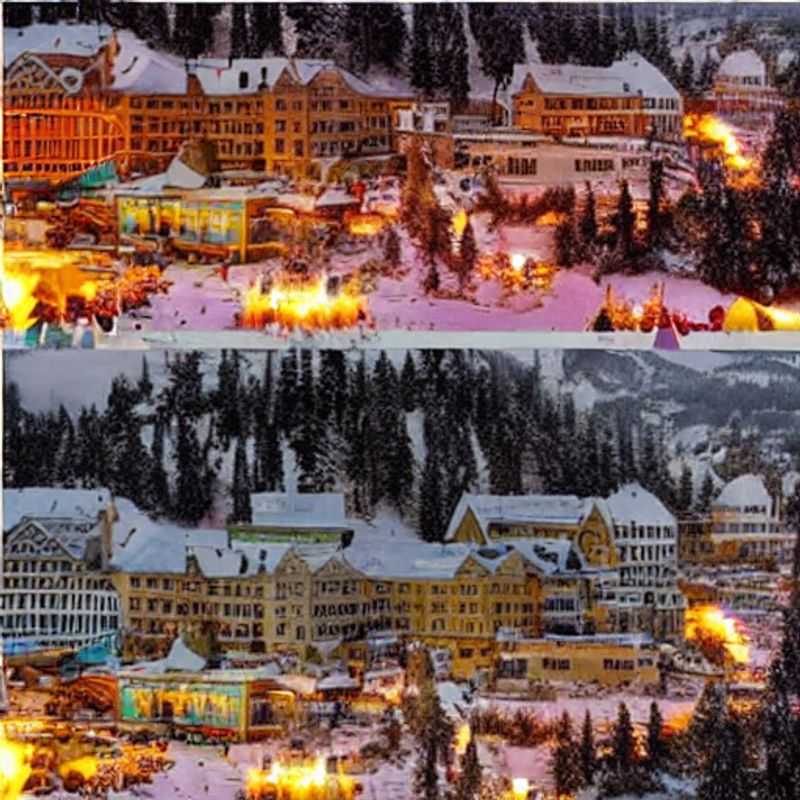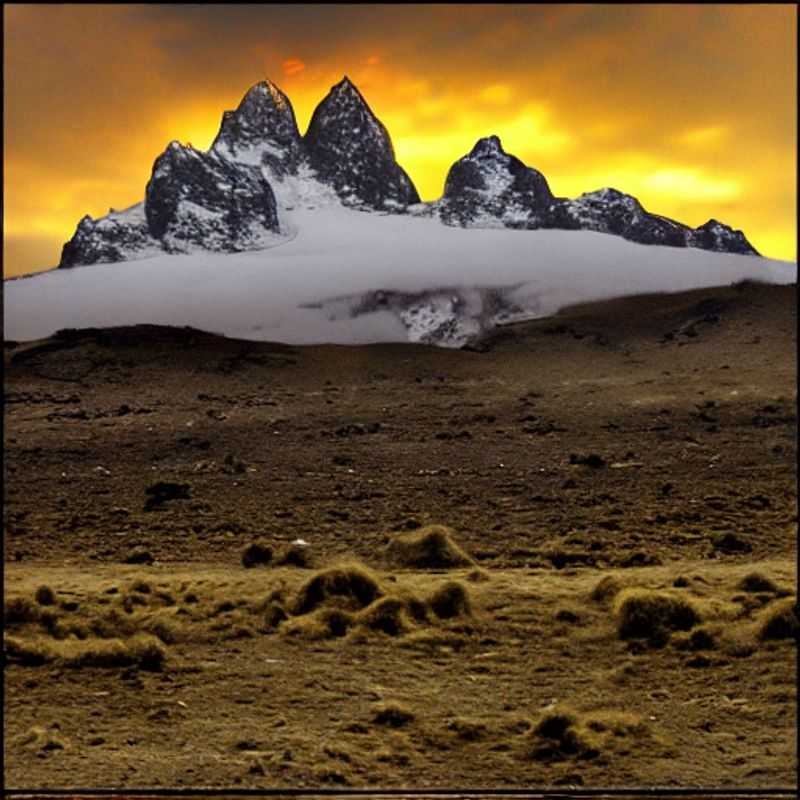Mount Kenya in Summer: Top 3 Backpacking Adventures & Is It Worth It?

Mount Kenya Safety: Essential Advice for Your 2026 Adventure
Planning a trip to Mount Kenya in 2026 requires careful preparation to ensure a safe and enjoyable experience. Understanding the altitude is paramount; acclimatization is key to preventing altitude sickness. This means allowing adequate time for your body to adjust to the decreasing oxygen levels as you ascend. Always ascend slowly and avoid strenuous activity on your first day at higher elevations.
When it comes to clothing and gear, pack layers. The weather on Mount Kenya can change rapidly, from sunny and warm to cold and wet. Essential items include waterproof and windproof outer layers, thermal underwear, a warm hat, gloves, and sturdy hiking boots. Don't underestimate the need for sun protection; high altitude sun is intense, so pack high SPF sunscreen, sunglasses, and a wide-brimmed hat.
Hydration is another critical aspect of Mount Kenya safety. Drink plenty of water throughout your trek, even if you don't feel thirsty. Dehydration can exacerbate altitude sickness. Carrying a water filter or purification tablets is also a wise precaution to ensure a safe water supply. Avoid consuming untreated water from streams.
Regarding health and medical preparedness, it's advisable to consult your doctor before your trip. Ensure you have necessary vaccinations and discuss any pre-existing medical conditions. Carry a well-stocked first-aid kit with essentials for blisters, pain relief, and any personal medications. Hiring a qualified and experienced guide is highly recommended for navigation, safety, and local knowledge. They are invaluable for spotting potential hazards and assisting in emergencies.
Finally, be aware of your surroundings and respect the natural environment. Stick to marked trails to avoid getting lost and to minimize your impact. Be mindful of wildlife and maintain a safe distance. Inform someone of your trekking itinerary and expected return time before you set off. By prioritizing these safety measures, your 2026 Mount Kenya adventure can be a truly unforgettable and secure journey.

You may also like
Is Mount Kenya Calling You This Summer? A Digital Nomad's Guide to Sun, Snow, and Serene Adventures!
Mount Kenya in Summer: Average Temps & Snow-Free Summit Views
Summer Activities on Mount Kenya: Hiking, Wildlife Spotting, and More!
Budgeting Your Mount Kenya Summer Escape: Accommodation, Activities, and Costs
Escape the Crowds: Summer's Quiet Side of Mount Kenya
Accessibility & Transportation on Mount Kenya in Summer
Making the Most of Daylight Hours: Planning Your Mount Kenya Summer Itinerary
Summer Festivals & Events Near Mount Kenya: Cultural Immersion
Rainy Day Fun: Indoor Activities Around Mount Kenya
Hey fellow digital nomads! Thinking of a winter getaway to Mount Kenya in your caravan? Let's explore if this adventurous trip is perfect for you two. Mount Kenya's winter (June to August) offers a unique experience compared to the usual tropical image of Kenya.
Weather and Conditions: Expect average temperatures ranging from 10-20°C (50-68°F) at lower altitudes, significantly cooler at higher elevations with potential for frost and even snowfall above 3000 meters. Ice is likely on higher mountain passes, impacting accessibility. Always check weather forecasts before setting off!
Winter Activities: While Mount Kenya isn't known for large-scale skiing or snowboarding, you might find opportunities for hiking and trekking, depending on snow conditions. Ice skating isn't typically available. The focus is on breathtaking landscapes and wildlife viewing; many trails may be more challenging due to mud and potential for ice.
Cost of Travel and Accommodation: Caravan camping reduces accommodation costs significantly. Expect to pay around $20-$50 per night for campsite fees, varying depending on location and facilities. Fuel costs for your caravan should be factored in, approximately $50-$100 per week depending on your usage. Food costs will depend on your preferences, but plan for approximately $50-$100 per person per week for groceries. For dining out, expect to pay $10-$30 per meal per person. Entrance fees to national parks and reserves average around $20-$50 per person per day.
Crowd Levels: Winter is considered the shoulder season, so you'll find fewer crowds than during peak tourist times (July and August can get slightly busier). This translates to a more intimate and serene experience.
Accessibility and Transportation: Accessibility may be impacted by weather. Four-wheel drive is highly recommended, especially for reaching higher altitudes. Check road conditions before embarking on any journeys, and be prepared for potential delays.
Daylight Hours: Daylight hours are shorter during winter, influencing sightseeing opportunities. Plan your days accordingly, ensuring you have enough time to enjoy the sights before nightfall.
Winter Festivals and Events: Mount Kenya doesn't have large-scale winter festivals in the same way some Western countries do. However, you might find small, local community events or celebrations depending on the time of your visit. It’s advisable to check local community listings prior to your trip.
Indoor Activities: Indoor activities are limited outside major towns. Focus on cozy evenings in your caravan, enjoying books, games, and each other's company.
Local Culture: Experience the warmth of Kenyan hospitality. Engage with local communities respectfully, try traditional dishes like mukimo (mashed potatoes, maize, beans, and greens), and listen to the vibrant sounds of local music, often heard in markets and social gatherings. Observe the beautiful architecture of the region and keep an eye out for local flora and fauna.
Estimated Total Trip Cost (for two people, 1 week):Accommodation (camping): $140-$350; Fuel: $50-$100; Food (groceries & dining out): $350-$700; Park Fees: $140-$350; Miscellaneous: $100-$200. Total Estimated Cost: $780-$1700 (excluding flights). Remember, this is a rough estimate, and costs can vary depending on your choices.
Happy travels, adventurers! Remember to be flexible and embrace the unexpected – it's all part of the nomadic charm!

You may also like
Mount Kenya 2026: Key Considerations for Independent Adventurers
Planning an independent adventure to Mount Kenya in 2026 requires careful consideration, especially regarding safety and logistics. For solo travelers, understanding the terrain and weather patterns is paramount. This includes researching the best time to visit, which typically avoids the peak rainy seasons to ensure clearer trails and safer ascents. Booking accommodation and any necessary permits well in advance is also a crucial step, as availability can be limited, particularly for less common routes.
When it comes to the trek itself, hiring a local guide is highly recommended, even for experienced trekkers. Guides not only possess invaluable knowledge of the mountain, including potential hazards and emergency protocols, but also offer cultural insights and can enhance the overall experience. Packing the right gear is non-negotiable; think layers for fluctuating temperatures, waterproofs, sturdy hiking boots, and adequate sun protection. Staying hydrated and acclimatizing properly are vital to prevent altitude sickness, so be sure to factor in rest days. Finally, ensure you have comprehensive travel insurance that covers high-altitude trekking and medical evacuation – this is a small price to pay for peace of mind on your epic Mount Kenya journey.